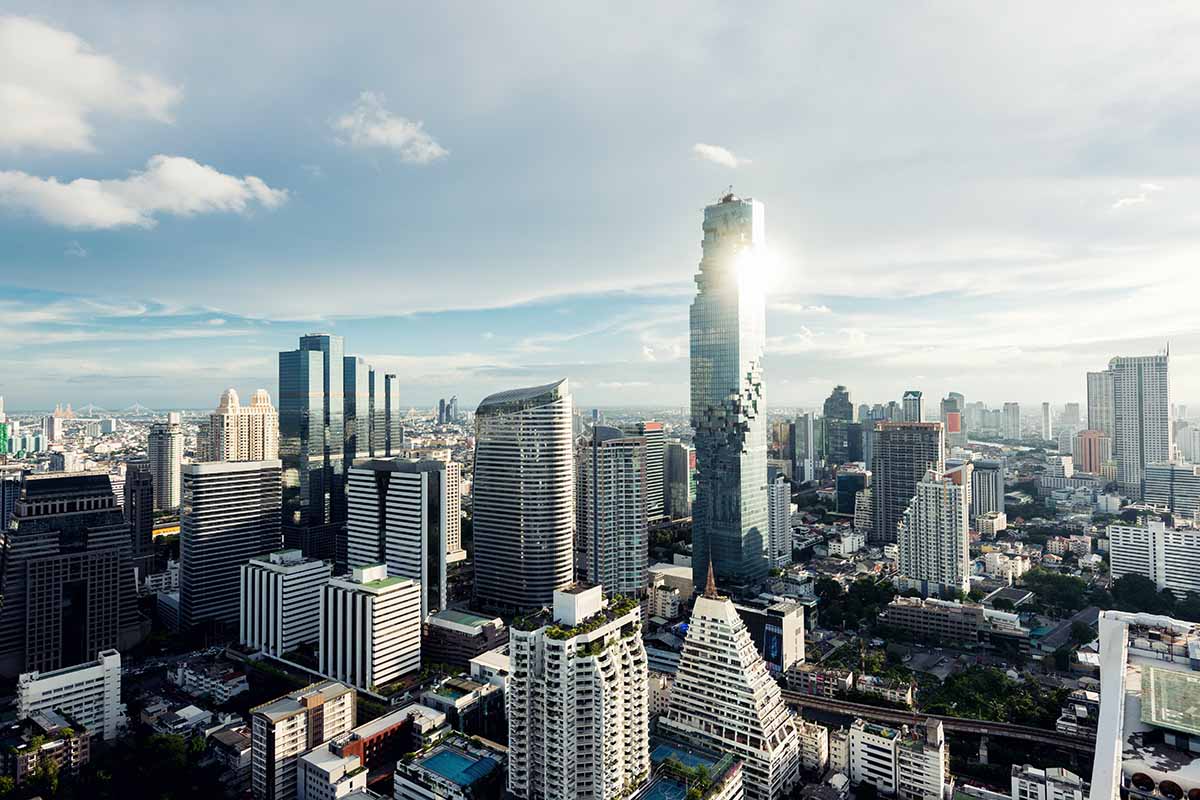Essential Tips for Doing Business in Bangkok
Key Points
- Bangkok’s Business Benefits: Bangkok’s strategic location, supportive government initiatives, and skilled workforce make it attractive for entrepreneurs.
- Business Risks in Bangkok: Corruption and intellectual property issues are notable risks; foreign businesses must comply with local laws to mitigate challenges.
- Business Setup in Thailand: A private limited company is the most popular structure for foreigners, offering benefits like limited liability and easier visa applications
The capital of Thailand regularly ranks among the top 10 most visited cities in the world. Its warm climate, delicious street food, and affordability make it a top destination for tourists from all over the globe. However, it is also a popular city among entrepreneurs and other businesspeople.
The business environment there is very accommodating of foreign businesses who wish to start operating in the country, but of course, there will be some regulations and requirements to comply with that may be different from the other countries where a business operates.
This guide will walk you through the factors that make Thailand an attractive place to do business, explain some of the risks you might face, and introduce some of the legal requirements of setting up a business in the Kingdom.
The benefits of doing business in Bangkok
Thailand’s major industries are tourism and the export of rice, textiles, jewelry, and electrical devices. Still, conditions in the country, especially in the capital, make it a hospitable environment for all kinds of commercial enterprises.
✅These include:
- Strategic location: Bangkok is a gateway to the growing economies of Southeast Asia. Thailand shares land borders with Cambodia, Laos, Malaysia, and Myanmar. Many businesses in Thailand have commercial relationships with these countries and other members of ASEAN (Association of Southeast Asian Nations), of which Thailand is also a member. Thailand also offers convenient access to India, China, and Vietnam.
Bangkok sits a little to the north of the Gulf of Thailand, where the Chao Phraya River empties into the city. The Gulf is home to some of the busiest ports in Southeast Asia, and the city is served by two airports.
- Robust economy: Thailand was one of the ‘Tiger’ economies that experienced rapid growth towards the end of the 20th century, leading to a large consumer-oriented middle class.
By some estimates, 65% of the country’s 71 million people will fall into that category by 2030, making the domestic market alone a very attractive proposition for business.
- Supportive state initiatives: The Thai government has established institutions such as the Board of Investment to encourage foreign investment and also offers tax incentives.
The government has also supported technological innovation, especially in Bangkok where several tech parks and a National Innovation Agency have been established to promote technology development.
- Established business ecosystem: Finding an office for rent in Bangkok is easier than anywhere else in the country. The same goes for seeking financing or solving other business issues. This is because the city has a well-established infrastructure to support businesses.
Efficient and reliable public transportation makes it easy for you and your employees to get anywhere you need to go.
- Local talent: Bangkok is where most of Thailand’s brightest and most ambitious workers head to build their careers. The city is home to many well-educated, English-speaking individuals, and the cost of labour is very competitive compared to most Western economies. Combined with lower overheads such as utilities and rent, moving business operations to Bangkok can be an effective way to reduce business costs.
Additionally, many of the factors which attract tourists to the city also attract expats, and this means that Bangkok is home to a skilled foreign workforce too.
Business risks in Thailand
As with any country or city, there are risks and benefits to doing business in Bangkok.
Although illegal, corruption is a serious problem in many sectors.
Officials may deliberately obstructive to elicit payments or gifts, yet providing these things to them would cause many foreign business owners to breach the law in their home country.
Thailand is also on the US government’s intellectual property watchlist, which lists countries that are notable sources or sellers of counterfeit goods.
To defend existing intellectual property, you must register it with the Thai authorities, and while the legal system is there to protect against infringement, it is nonetheless common.
Setting up a business in Thailand
If you’ve been sold on the benefits and are thinking about starting a business in Thailand or expanding an existing one, there are several ways to do it, but private limited companies are by far the most popular way for foreigners to set up a business in Thailand.
This structure means that shareholders benefit from limited liability; the most you can lose is the invested capital.
It will also allow you access to resources in the country, such as corporate bank accounts, and it is easier to apply for visas and work permits for yourself or other foreign employees.
However, limited companies with majority foreign ownership are generally subject to more restrictions and require a foreign business license to operate.
This does not apply to certain sectors, such as hotel management or export-only businesses.
On the other hand, the majority of Thai-owned limited companies are largely unrestricted as long as their activities are lawful.
Many foreigners setting up businesses in Thailand own a minority of shares and have a Thai partner own the rest.
You can still retain control by owning preference shares, which give you more voting rights.
The process of setting up a private limited company is fairly painless.
It can be completed in less than a week with the assistance of a reputable law firm, several of which are in the capital. The things you will need are fairly minimal.
✅They include:
- At least two shareholders,
- At least one director,
- A Thai address to register as your corporate address,
- Two million Thai baht in capital for every foreign employee or executive in the company.
Thailand’s Board of Investment is also useful for finding advice about setting up a business in the Kingdom.
Conclusion
A well-established and affordable business environment makes Bangkok an excellent choice for many businesses, whether just starting out or expanding to a new market.
But remember to carefully consider both the risks and the benefits, such as those discussed here, to decide if it might be the place for you.





















